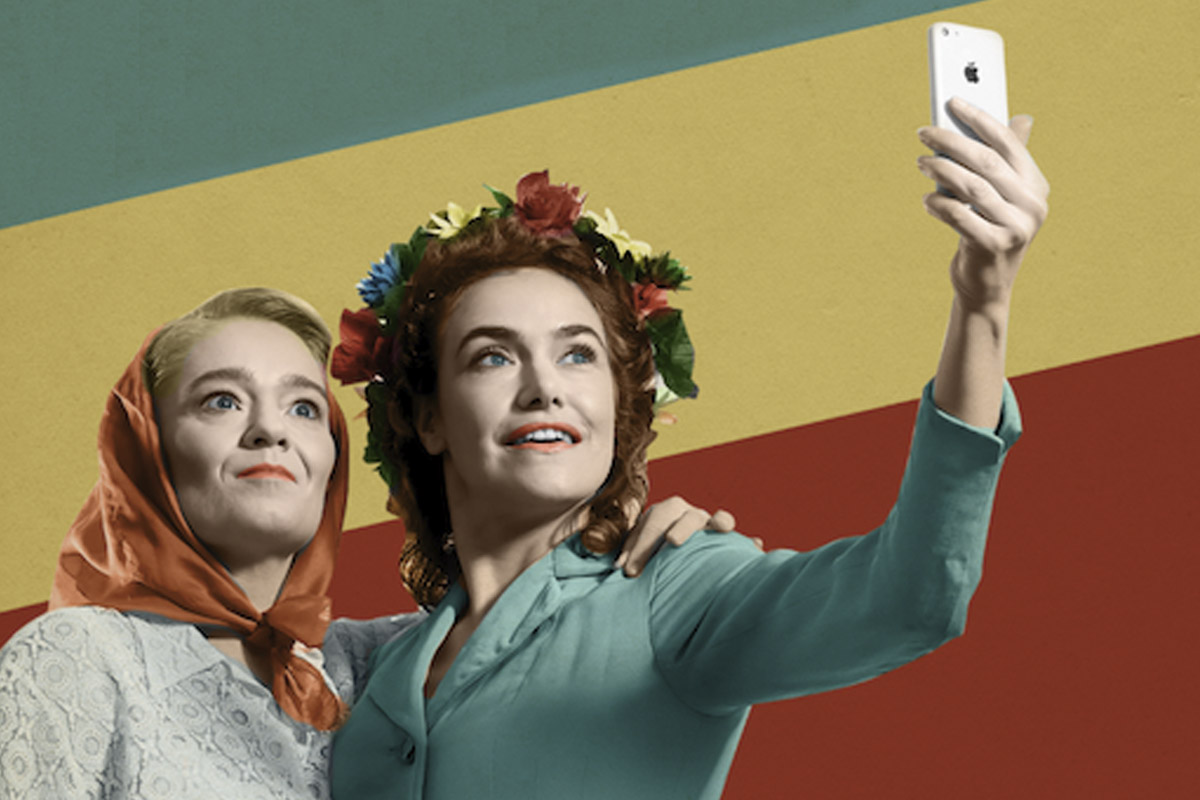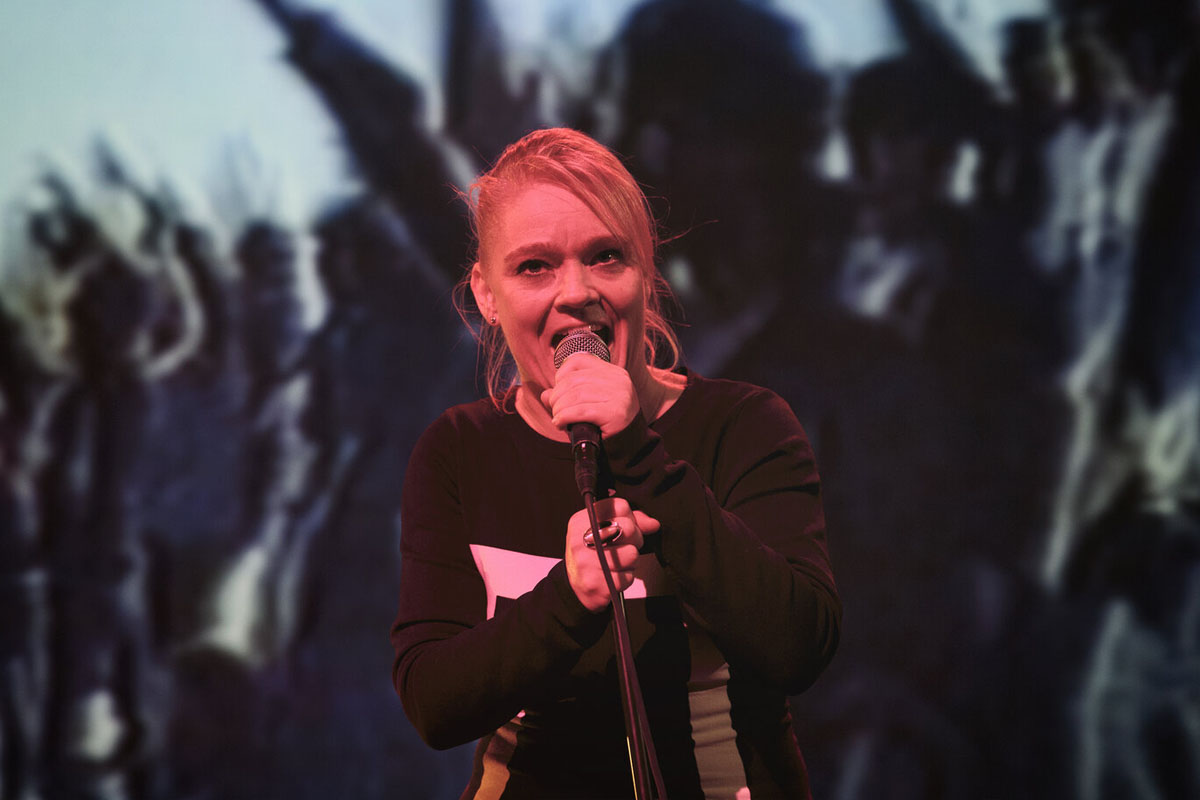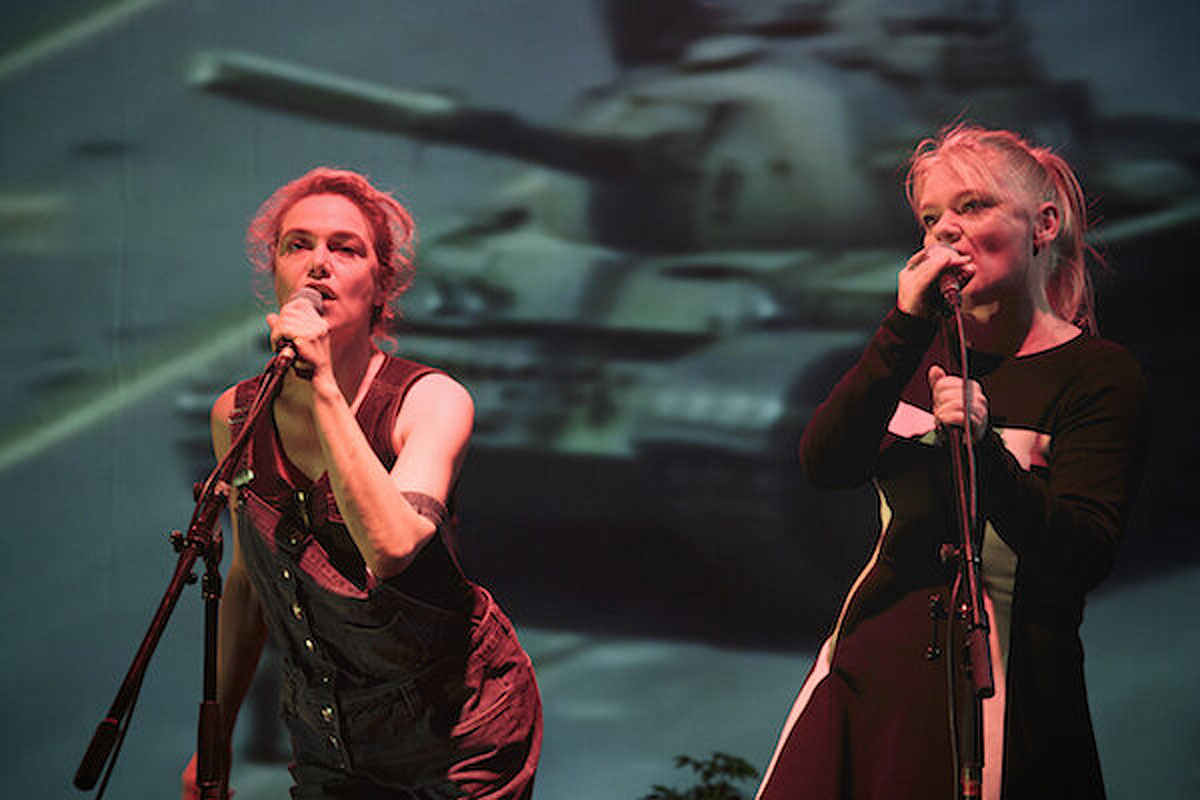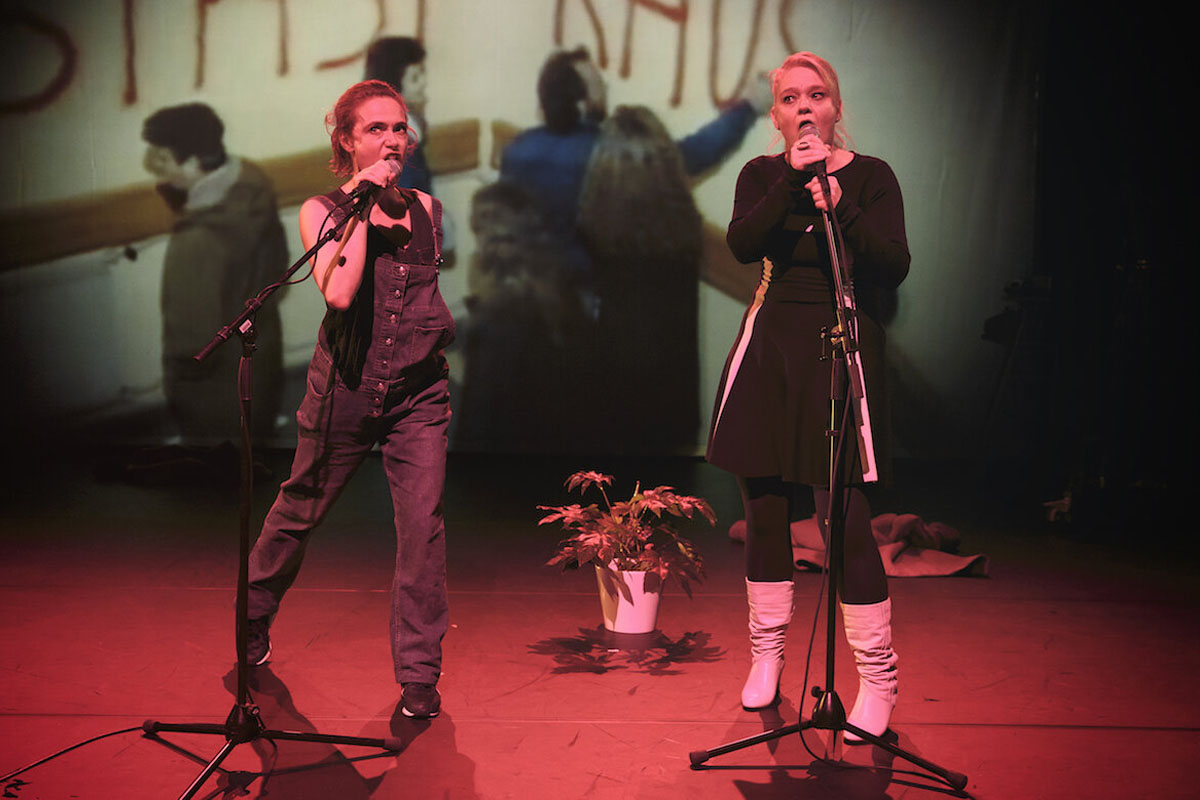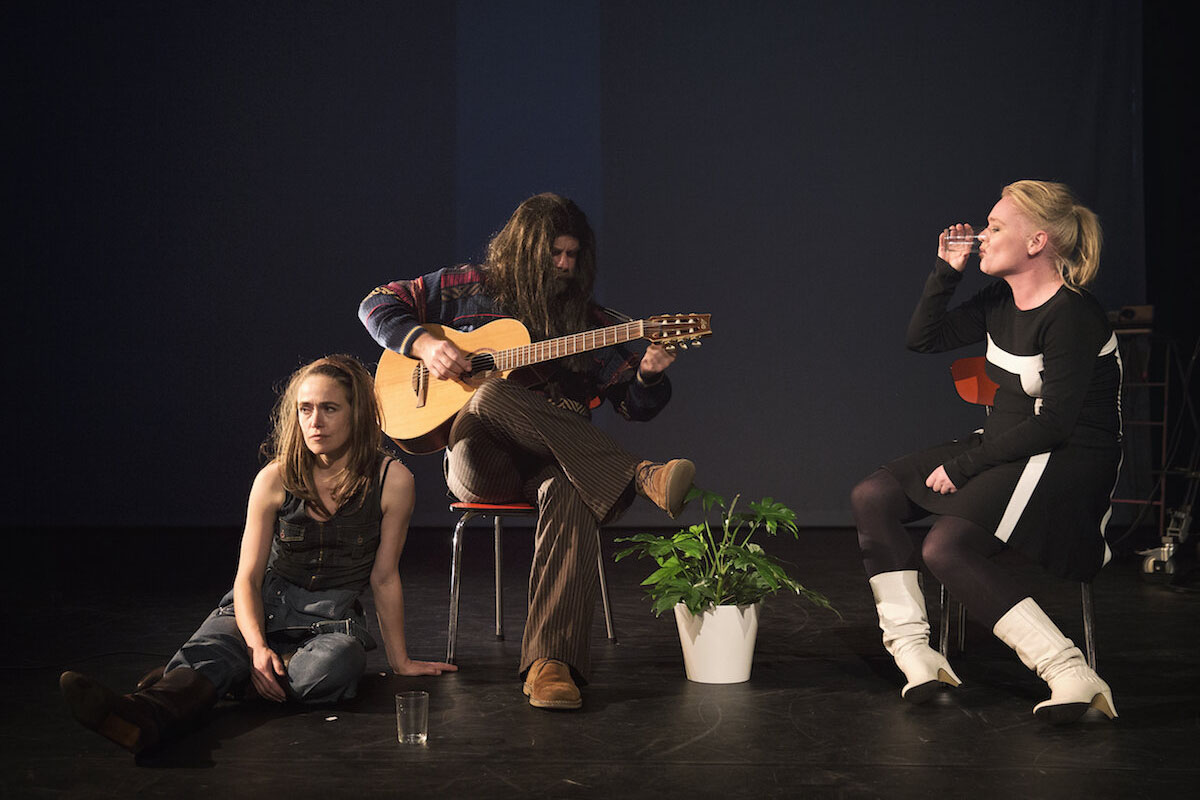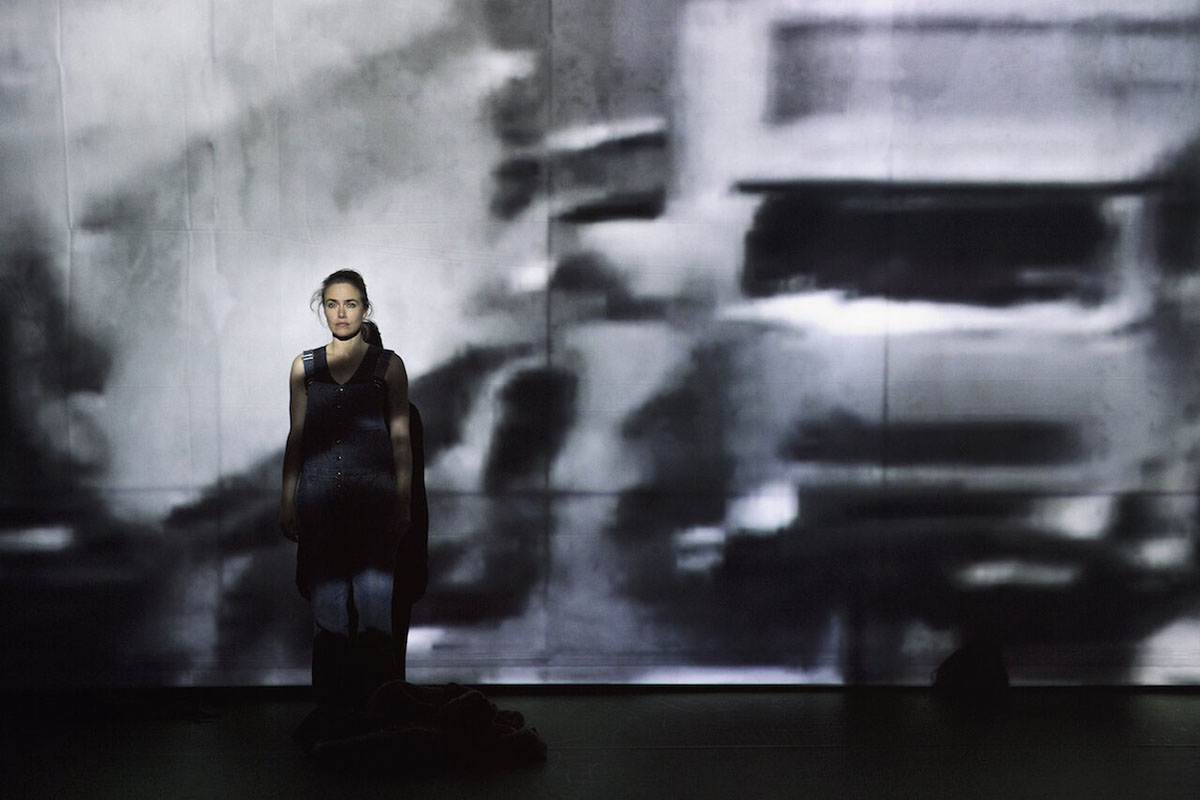The Second World
Anna does everything she can to survive the terror of the Polish Secret Service and escape its tentacles. Monika also does her utmost: she dedicates herself to her work for the Stasi.
Two women behind the Iron Curtain, convinced of their own ideas, in search of a better existence. Victim and offender in an ultimate effort to protect their loved ones from the reign of terror under which they live. How can you possibly remain true to yourself when trying to survive in a totalitarian system?
In a searing performance, Julia van de Graaff and Gonny Gaakeer look for the hero and the traitor that is in themselves – and in every one of us. Multi-instrumentalist Radek Fedyk supports them with live music, taking the spectator on a musical road trip that includes Polish rock and German punk.
The Second World (De Tweede Wereld) is based on documentary materials from the 1970ies and 1980ies: interviews with informers who worked for the secret services in former Eastern Block countries.
The Second World was also performed in Poland. Given the play’s setting and themes, this performance proved especially powerful. A Polish review by critic Ewa Bak of this performance encapsulates quite well what this project was aiming for. You can read the review in Dutch here, and below are some excerpts translated to English.
“Tg. LYNX from the Netherlands examines an interesting and important theme in this performance: the story of the Eastern European individual after the Second World War, and in particular the citizens of Poland and the former GDR. It’s about their attitude to totalitarian power, a power which attempted to break people’s moral backbone, and reshape the educational system and education. A power that regulated, limited and controlled the relationship between state and citizen. A system that mentally reprogrammed man and created the Homo Sovieticus. How wonderful that this performance was made: it contains beautiful playing and singing – MURY by Jacek Kaczmarski in Polish – and the situation is beautifully portrayed.”
“The actresses handle this highly complicated theme with excellence, both through the text material and in the choice of the director to have them play double roles. The performance is clear, captivating and attractive in its form. The whole is balanced, no extreme emotions are displayed. The makers show the facts, explain them without judging or criticizing, there is no stigmatization. They praise neither the behavior of their characters nor what is required of them. Rather, they show the tragedy and the consequences of the situation in which the main characters ended up through no fault of their own, and the choices they make within it. We are witnessing the consequences that this has for individuals like Anna and Monika, but also a broader general human and national context”.
“The play slowly forces itself on you, as a logical result of the directing. It unfolds as an unavoidable sequence of events and the way in which all the information is summarized and the different attitudes are scrutinized, results in the performance finally grabbing you by the throat. The merit of this performance is that it allows the audience to independently arrive at those conclusions, to foresee the consequences, to fathom the dangerous consequences for the future.”
“… they use a variety of modern forms of expression: video, documentary material, interviews, animations and a precise dramaturgy in which several life courses in different times and in different places are smoothly interwoven.”
“Perhaps it’s easier to see from the outside, in this case from the Netherlands, what motivated people behind the Iron Curtain to display a certain behavior in certain circumstances and situations. For Western Europe, that part of Europe is the second world. Just as Western Europe was for a long time the promised land for Eastern Europe; that second unknown world, which people so longed for. In a sense, that division has never completely disappeared. That makes it so necessary to understand what has happened on the different sides of that formally no longer existing border. Because people still have the same fears, worries, walls and boundaries, the same past.”
“But why was such a performance never made in Poland?”
direction & stage design Leen Braspenning en Johann van Gerwen
concept & performance Julia van de Graaff and Gonny Gaakeer
text Monika based on the book ‘Geschützte Quelle’ by Irena Kukutz and Katja Havemann
text Anna based on interviews by Julia van de Graaff with her Polish-Russian family
adaptation Julia van de Graaff, Gonny Gaakeer, Leen Braspenning en Johann van Gerwen
composition Radek Fedyk
production manager Kim Eldering
2016



